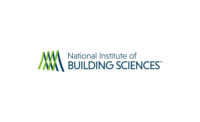The High Performance Building Caucus recently recognized new recommendations to the building industry. The recommendations are part of the National Institute of Building Sciences Consultative Council 2012 Report, “Moving Forward: Findings and Recommendations from the Consultative Council.”
The Consultative Council, a representative council of the nation’s building community, prepares the report annually as required by the Institute’s enabling legislation. This year’s report, according to the organization, aims to show a pathway toward high-performance buildings. It offers specific recommendations that can be implemented in the near term to serve as the basis for a national buildings policy.
Key findings and recommendations in the report include:
• The building industry and policymakers should identify baseline metrics to measure the achievement of high performance and coordinate existing efforts in this area.
• The building community must engage with climate and weather scientists to help identify the information required to adapt buildings to climate change, and to develop the practices, standards, codes, and guidelines needed to implement that adaptation into the built environment.
• All stakeholders should work to identify areas for streamlining the regulatory process and finding and applying solutions that eliminate overlap, duplication, inconsistencies, and inefficiencies in the application of regulations, processes, and procedures applied to the built environment.
• The building industry and regulatory community should identify ways to improve the current process of code compliance, as well as look for alternative processes — particularly as state and local governments are faced with shrinking budgets.
• Building owners must recognize the value of retrocommissioning and the importance of well-qualified retrocommissioning authorities.
• Policymakers should support the building industry in quantifying the impact of retroactive application of requirements on the existing building stock.
• Policymakers, foundations, and research institutions should provide financial, political, and technical support for multi-disciplinary research that supports achievement of high-performance buildings.
• Utilities, policymakers, code developers and the industry at large should focus on developing an approach to time-dependent valuation of energy, conducting research to support guidance on proper pipe sizing to save resources and protect human health, and determining how thermal insulation on potable and other hot water delivery systems impacts both energy and water use.
The institute’s 2012 annual report, which is submitted to the President of the United States, contains a summary of the Consultative Council Report.
For more information, visit www.nibs.org.



